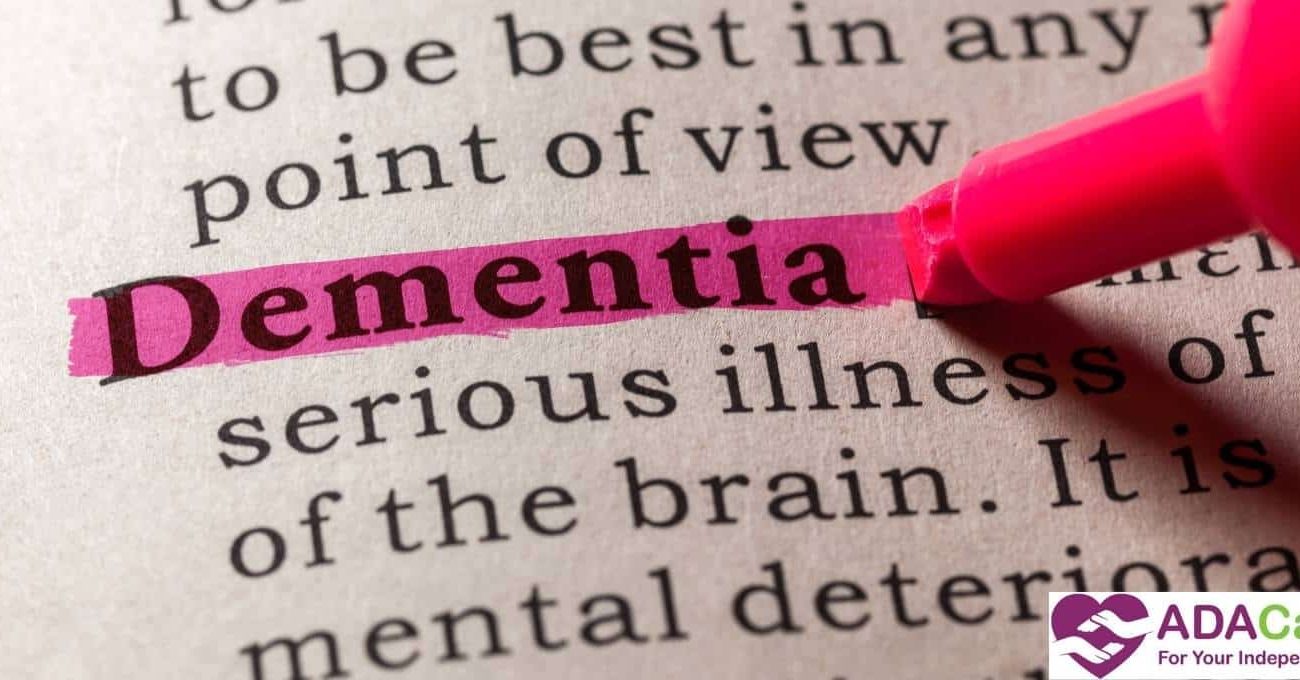Dementia Support Australia
Sometimes you might forget names, anniversaries, paying the bills, where you parked your car or even why you went into a room. An occasional memory slip is perfectly normal, especially as we get older. However, dementia is something different. It is a disorder that causes a compelling physical, emotional, social and financial burden on patients, their caregivers and society. It is characterised by a decline in cognition involving one or more cognitive domains such as learning and memory, language, executive function, complex attention, social cognition. The deficits are severe enough to hinder daily function and independence.
About 10% of people develop dementia at some point in their lives, commonly as a result of aging. As the life expectancy goes up globally, the overall burden of dementia is also increasing unavoidably. For this reason, it is essential to consider getting dementia support for your loved ones. Our NDIS approved carers in Sydney can help you to enhance the quality of your life.
Dementia Symptoms
Most people think dementia is equal to memory loss. Forgetfulness is the most common complaint as it often starts impairing the short term memory but it causes several more difficulties. Those include problems like loss of spatial ability and orientation (even in familiar places), struggling with usual daily tasks like cooking or using a bank card, trouble with language and communication (e.g. not remembering the right word), mood and behavioural changes. Symptoms of dementia are generally gradual, persistent and progressive. The speed at which dementia worsens varies widely from person to person.
Types of Dementia
Dementia is mostly caused by a neurodegenerative disease, which is characterised by the progressive degeneration of the structure and function of the nervous system. The most common form of dementia is Alzheimer disease, responsible for 60 – 80% of cases. Other neurodegenerative types are dementia with Lewy bodies, Frontotemporal dementia and Parkinson disease dementia. Non-neurodegenerative dementias may be reversible or slowly-progressing if the underlying cause can be identified and adequately treated. Vascular dementia is the most important type of those and is responsible for at least 20% of dementia cases. It is caused by an injury that is affecting the blood supply to the brain.

Dementia Treatment
No medications have been shown to prevent or cure dementia except the reversible types. However, they are used to treat the symptoms. For patients with newly diagnosed Alzheimer disease dementia, cholinesterase inhibitors which prevent the breakdown of acetylcholine in the brain, a key neurotransmitter involved in learning and memory, are suggested. Another agent called memantine is neuroprotective, which means helping restore the function of the remaining neurons.
There are non-medicational interventions as well. Cognitive therapies, which might involve doing word puzzles or discussing current affairs, aim to maintain memory cognitive function. Exercise programs may improve physical functioning or at least slow the progression of functional decline.
Dementia Care
Caring for someone with dementia can be challenging. The person with dementia will change and behave differently with time. As the disease advances, unfortunately, the needs of the patient will increase and the ability to show appreciation will diminish which makes it an emotionally frustrating process. Because of that reason you should seriously consider getting support from an NDIS approved organisation which is specialised in dementia care.
While communicating with someone who has dementia, there are some recommendations to follow:
• Speak slowly
• Always call by name
• Introduce yourself every time there appears to be doubt
• Use ‘yes/no’ questions instead of open-ended ones
• Find a different way to express yourself if not understood
Asking for help is not a luxury, it is a necessity. It is extremely hard to do it all alone. Also, you might be eligible to receive NDIS funded service, fill in the form or call us on 02 9232 7055 to reach our NDIS support providers & dementia carers.


